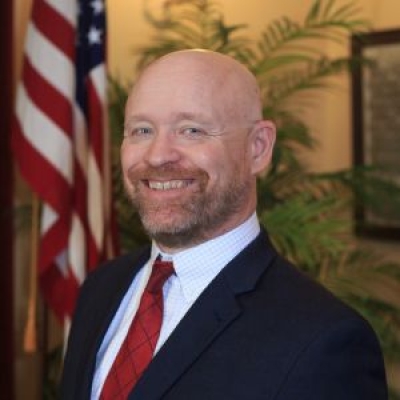NOTE: Today, the Ohio House of Representatives’ Primary and Secondary Education Committee heard testimony on SB 229. The bill would, among other provisions, make a number of pandemic-influenced changes to remote learning and test-based accountability. Fordham’s Vice President for Ohio Policy provided interested party testimony on the bill. These are his written remarks.
Thank you, Chair Manning, Vice Chair Bird, Ranking Member Robinson, and House Primary and Secondary Education Committee members for giving me the opportunity to provide interested party testimony today on Senate Bill 229.
My name is Chad Aldis, and I am the Vice President for Ohio Policy at the Thomas B. Fordham Institute. The Fordham Institute is an education-focused nonprofit that conducts research, analysis, and policy advocacy with offices in Columbus, Dayton, and Washington, D.C.
When the 2020-2021 school year finished in June, many people felt a big sigh of relief. It was a challenging year, but there was also a sense of optimism that the coming year would be different and include a return to something resembling normal. Unfortunately, late summer brought a resurgence of Covid cases and many schools were disrupted by both positive cases and quarantines. Most schools exhibited a strong resolve—and a splash of creativity—to keep their students in classrooms whenever possible. Nevertheless, some schools needed to resort to some combination of remote or blended instruction at times.
It’s for that reason that we are largely supportive of the underlying objective of SB 229 which allows Ohio schools increased flexibility to employ remote and blended learning—with some important guardrails—this school year. We don’t offer this support lightly. The data from last school year is clear: Ohio students struggled and those learning remotely struggled even more.
In September, Ohio State University professors Stéphane Lavertu and Vlad Kogan published a first look at 2020–21 student achievement data. Student learning is down one half to a full year in math and one third to one half a year in English. As feared, historically underserved students had the biggest declines. Because Ohio districts followed different paths last year—some opted for virtual school while others chose hybrid or in person learning—the researchers were able to demonstrate that remote learning played a big role in the learning declines.
Despite agreeing with the general intent of SB 229, there are a couple of areas where we have concerns.
The first has to do with a provision related to state testing for online (mostly charter school) students. Existing law provides that a student at an online school who fails to take the state assessment for two consecutive years is automatically withdrawn from the school. SB 229 grants some flexibility to that provision by restarting the clock for those students. On its face, that would be fine. Inexplicably though, it restarts the clock not for this school year but beginning next school year (2022-2023). With 94 percent of students having taken the state assessment last year, there’s no way that online students shouldn’t be expected to take the state assessment this school year. Over the past five or six years, Ohio has made tremendous progress in regards to charter school accountability. This change would be a step backward and is being done without any obvious need. We request that you modify the existing language to restart counting for the two-year automatic withdrawal this school year (2021-2022).
The second concern surrounds changes to the third grade reading guarantee. Given the extraordinarily low levels of student achievement in third grade this year, extending the flexibility granted last year around this provision makes sense. Districts simply couldn’t retain all of the students who haven’t reached the promotion benchmark. That being said, we think it’s critical that parents be given honest, transparent information indicating that their child isn’t reading on grade level and information detailing how important early reading is to later educational success. There is a very real possibility that large numbers of students will be promoted from third to fourth grade without reading at or near grade level, and their parents will believe that everything is okay until they struggle in later grades. While flexibility is needed, we urge you to require an enhanced disclosure to parents empowering them with the information they need to know exactly where their children are in terms of reading ability.
Thank you for the opportunity to provide testimony.




